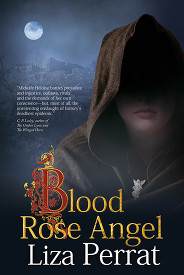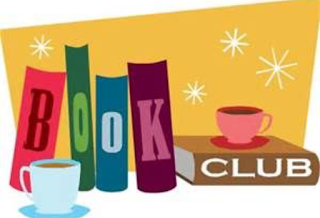About the author
Yvvette Edwards is a London author of Caribbean heritage. She is the author of two novels - A Cupboard Full of Coats and The Mother. Her books are peopled by characters who, as she said in an interview for Foyles, “speak in ways I recognize, like people whose roots were forged in the Caribbean who have made their permanent homes here in the UK."
About the Book
A Cupboard Full of Coats is a story of domestic abuse and the way its consequences reverberate down through the years. We see events unfold, not through the eyes of the abused woman, but through the eyes of her daughter, Jinx – sixteen at the time of her mother’s murder and now thirty – and Lemon (short for Philemon), a family friend.
The adult Jinx is emotionally shut down, her relationship with her son and ex-husband in tatters, when Lemon arrives on her doorstep, determined to unearth the past she has tried so hard to bury. Bit by bit, we piece together the events that led up to her mother’s death. As the heartbreaking significance of that cupboard full of coats is revealed, we start to glimpse Jinx and Lemon’s own roles in the tragedy.
Discussion:
A Cupboard Full of Coats is a tender telling of an all-too-common tragedy. How did you find this way of approaching what could be a very difficult subject?
(GEH) I think the author has been very clever in the style she used and the balance is spot on. Gripping, real, thought-provoking and emotional without a hint of melodrama. Getting to know and understand Jinx as an adult gave us an insight into her teenage years from a totally different perspective. The most emotive part for me was the cupboard full of coats - but I don't want to add any spoilers here. Just read it!
(JJ) For me, Edwards's skill is in how much she reveals and how. I saw it as less of an all-too-common tragedy, but all-too-common outcome of tragic events. A damaged child grows into a damaged adult and only has one version of the story. This book is unusual in how it thaws and unpacks those frozen perspectives.
The novel is set in Hackney in East London, but the older generation of characters are all immigrants from the tiny Caribbean island of Monserrat, and the language and rhythms of the island permeate the story. How did you feel that worked? Did it draw you in?
(GEH) Okay, so I listened to the Audiobook version and I thought the narrator was amazing with a capital A! I loved all the voices, particularly Lemon and the teenage friend, Sam. It totally enhanced the story for me, added depth to the characters and drew me into the lifestyle of Hackney at the time.
(JJ) I read the book, but I'm a massive fan of voice, especially when done this well. I know nothing about Monserrat, although felt I had learnt much by the end of the book. The language, rhythms, culture and cadence all had an effect on the pace, which felt relaxing and easing, Ideal for a book which unties old knots.
Edwards’ writing is profoundly sensual–whether she is describing Lemon dancing, plaiting cornrows into Jinx’s hair, or the coats themselves, still carrying the lingering scent of her mother, moulding to her naked shape as perfectly as second skin. Were there particular images that stood out for you?
(GEH) I was going to say the coats first and foremost, but also the description of the Caribbean style food and drink Lemon created and the lyrical way his movements added to the experience. One image is the description of pumpkin soup he cooked, the colour, richness and taste came across borderline erotic. Jinx was an unusual narrator because her inner battles gave differing accounts of the same thing - but with Lemon she couldn't hide her feelings. And on the same note, the sex scenes, I thought were perfectly balanced with enough eroticism and realism to bring the images alive for the reader. Excellent job!
(JJ) The most striking moments are when the sensual echoes the emotional and exposes the emptiness Jinx is only dimly aware she has. The description of her licking the gravy even when the plate was clean struck me as reflective of someone starved, but not of gravy. The echoes of childhood sensory experiences comfort an adult who is convinced she has no need of them. This was an incredibly powerful theme and made the book rich in its subtlety.
Food plays a central role – the scents and tastes of the food Lemon cooks, creating a bridge between Jinx and her past. Saltfish cakes and plantain, “red mullet, perfectly fried, crisp and salty on the outside, moist and steaming on the inside.” Sorrel and Guinness punch. Pumpkin soup, “saffron coloured and bursting with flavour, with small soft pieces of yam and sweet potato and green banana and tania seed and chewy torpedo dumplings.” Why do you think Edwards makes it so important?
(GEH) Yes, as I touched on in the previous answer, I loved the references to the food and it added a colourful and interesting layer to the characters and the story. I think for the author it may have been a nod to her culture, to the importance of food in their family life, how Caribbean family life revolved around food traditions and she wanted to bring this into modern-day Hackney and Jinx's story. And also, maybe to show some comfort amid the cruelty that surrounded Jinx and her mother on a day to day basis, that they had their love of food there no matter how bad life got for them.
(JJ) Food is something I always notice in books and use liberally in my own writing. For me, it is a key aspect of conjuring the environment. This is one aspect of what Edwards does but as Gilly says, there's a deeper sense of identity involved with these tastes and flavours. Preparing food for someone shows love and care and dedication. These meals are an embrace, another way to give someone a hug. A striking element of the cook and cooked-for is how Jinx opens up to the joy of eating these foods. For someone so apparently closed, she abandons herself to the simple act of eating, while the reader feels the layers of distance peel away.
How did the central image of the cupboard full of coats work for you?
(GEH) I thought the title of the novel was unusual, and even the first time Jinx went to that cupboard in her mother's bedroom, I thought it was just a matter of needing them for comfort. But as the layers of the story were gradually peeled away, and the truth revealed, I found it heart breaking. I had pictures of her mother's bruised face, forced smiles and the dread every time a new coat appeared.
(JJ) It fits. Not just because of why the coats and where they came from, but again, the sensuality of these arms, these soft fabrics, these symbols of comfort in more than one way. I also felt a resonance with the concept of cupboard or closet. Closed doors where something scary might lurk. A portal to another world, where imagination can escape. Or simply as a place to hide.
Without giving too much away, did you find the revelation of Jinx’s and Lemon’s role in the tragedy believable? Satisfying?
(GEH) Yes, both. Lemon's role I found totally believable, the balance between love and hate is a fragile one, particularly when weighted by jealousy. With Jinx I did wonder if such a simple act of childhood rebellion would really have left her so scarred and guilt-ridden. But in hindsight, without knowing about Lemon's involvement too, yes, I can see how it would have built up until she felt the whole weight on her own shoulders. I liked the conclusion, the visit to the family grave and reconciliation with her son. It was very cleverly portrayed.
(JJ) Their roles in the tragedy, whilst vital to the story, were less significant than what they believed and the stories they told themselves. The satisfaction comes from changing the patterns of thought, blame and self-regard. When a defining event turns out to be not what you thought, you have to change your own story. You re-define. As the book shows, it sometimes requires a blast from the past to comprehend your role.
Do you think the ending contains some promise of healing and redemption for the two central characters?
(GEH) Lemon - I don't know. From the tending of the grave, he clearly had lived with a lot of remorse. I am not sure he feels he deserves redemption and as we had no hint of where he went to, I'm not sure what his future ends. For Jinx, yes, I think the skeletons of her past have been firmly buried now and she can see a future where she can love and trust and live ... finally.
(JJ) Yes. Both let go of something - guilt, remorse, unfinished business and dealt with the shadow hanging over them. Edwards hints at a stony path ahead and so it should be. Recalibrating a life does not happen in one weekend, which is what Jinx must do. As for Lemon, his visit may have lifted Jinx, but his own trajectory, freed of baggage, is unclear.
The book reminded me of Half Blood Blues by Esi Edugyan in the way that it peeled back layers of guilt and remorse. What other novels would you compare it with and why?
(GEH) I've had to think about this one ... and the first book that came to mind, maybe because of a similarity in style was The Kite Runner by Khaled Hosseini. Characters who are moulded by family secrets and lies that leave them burdened with guilt that is slowly revealed to the reader. And another book I enjoyed recently that had similar issues of grief and guilt that were slowly revealed was I Let You Go by Clare Mackintosh. A twist in the middle turns that book on its head, but we still see the aftermath of an event that completely changed a person's life before we learn about the event and the consequences. A real skill for an author to achieve.
(JJ) Gilly's spot on there with Khaled Hosseini. He explores loyalty and self-preservation perfectly in The Kite Runner. Three books came to my mind, the first being Beloved, by Toni Morrison. Completely different in tone, location and characters, but the spectre of grief as physical struck home. Sophie's Choice, by William Styron, moves from the collective guilt to the personal in one moment which destroys every participant. And A Girl is a Half-Formed Thing, by Eimear McBride. Her blend of remorse and regret is as physical, cultural, painful and emotionally agonising.












































